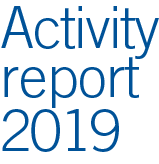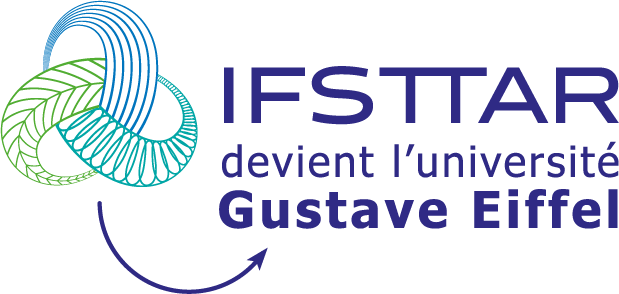With Université Gustave Eiffel, IFSTTAR's scientific mandates will be continued
In 2019, IFSTTAR gradually changed the focus of its activities in view of the forthcoming creation of Université Gustave Eiffel on January 1, 2020. While research activities continued normally within a stable setting in the Institute’s departments, the conditions necessary for the creation of the university were put in place during 2019.
With the creation of this establishment, IFSTTAR’s scientific mandates will be continued, in particular fundamental and applied research that interacts with expert appraisals and public policy support and which is international in scope and open to society. The virtuous continuum formed by training, research and expertise, which already existed at IFSTTAR, should be further consolidated and fostered. The development of the creation in 2019 of the vice-presidencies for Research, International affairs and Public policy support is in line with this vision of scientific roles that are both strengthened and reinvented.
The principal mandates of IFSTTAR and Université Gustave Eiffel
In particular the Institute has the following tasks:
- To carry out fundamental and applied research, perform methodological studies and develop tests and prototypes;
- To conduct expert appraisals and advisory work of all types in the fields mentioned in the first paragraph of this article;
- To implement a scientific and technical information policy and disseminate the knowledge gained, in particular through publications, technical regulations and standards;
- To pursue a policy to exploit the results of its scientific and technological research, in particular by means of technical support, technology transfer and certification tests;
- To play a role in training by and for research and both vocational and in-service training;
- To help to export its expertise and the techniques it develops and gain better international exposure for them.
Source: Decree of 30 December 2010 concerning the creation of IFSTTAR.
The main tasks of Université Gustave Eiffel:
- Initial and in-service education, with a strong focus on apprenticeship education.
- Careers guidance, social advancement and professional integration that also encourages entrepreneurship.
- Research (fundamental and applied) and innovation.
- Expert appraisals, public policy support and standardisation.
- Openness to society and international cooperation.
- Working with its partners to embody a dynamic outlook
- Dissemination of humanist culture, in particular through the development of the human and social sciences and scientific, technical and industrial knowledge;
- Openness to society and international cooperation.
Source: Decree of 13 December 2019 concerning the creation of Université Gustave Eiffel.
Les axes du COP
Goal 1
Improving the reliability of passenger and freight transport for all modes and purposes, with well-managed costs and externalities,
Goal 2
Enhancing the safety and ergonomics of transport, for mobility that is stress-free and respectful of human life,
Goal 3
Making progress with regard to multimodal, intelligent, clean and seamless systems and services.
Goal 4
Modifying infrastructure, at the lowest possible cost, in response to climate change and new operating and maintenance requirements,
Goal 5
Helping to build a circular construction economy by increasing the use of renewable materials and alternative biomaterials,
Goal 6
Developing new generations of transport and energy production infrastructure that take account of the digital transition.
Goal 7
Foreseeing natural and climate risks in order to improve the resilience of cities and regions, reduce their vulnerability and protect the population,
Goal 8
Understanding, evaluating and streamlining the interactions between infrastructure, transport services and planning policies, as well as their impacts on the environment and the population,
Goal 9
Helping to implement sustainable regional planning, especially in urban areas.
Goal 10
Creating conditions that foster excellence in research,
Goal 11
Sharing scientific and technical output, knowledge and know-how,
Goal 12
Increasing the Institute’s contributions to innovation.


